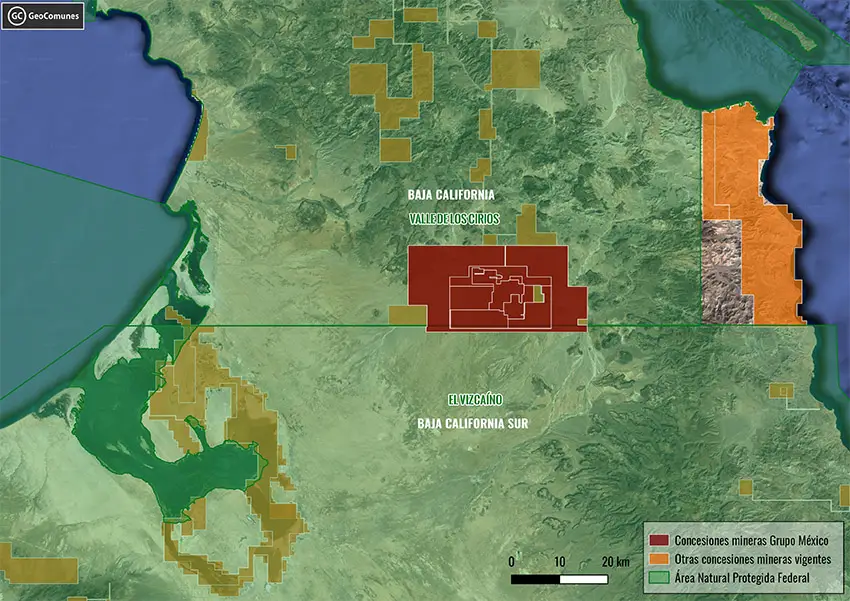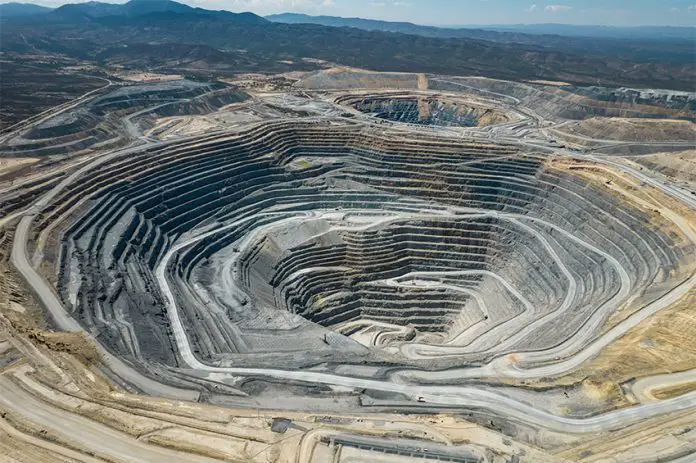Lawmakers from the state of Baja California Sur (BCS) unanimously lined up against a massive mining project in the neighboring state of Baja California, approving a point of order asking federal authorities to provide details on the concession and permits granted to the mining company Mexicana del Arco.
The BCS lawmakers approved several other points of order, including an invitation to Environment and Natural Resources Minister Alicia Bárcena to explain the federal government’s position on the issue to the state Congress.
The BCS deputies characterized the project as a social and environmental disaster waiting to happen as the mining operation would impact two wildlife protection areas, one in each state. The mining operation will require an estimated 9 million cubic meters of water per year, according to Mexicana del Arco’s parent company, Grupo México.
A separate point of order, according to the newspaper El Independiente, calls on the Baja California Congress to reject the El Arco mine project. The mine could begin production as soon as 2030, El Sudcaliforniano newspaper reported.
The proposed El Arco open-pit mine, possibly extending to 50,000 hectares, has the potential to be one of the largest mines in the world, producing up to 15.5 billion pounds of copper, 3.5 million ounces of gold and unknown quantities of zinc and molybdenum.
In 2021, Grupo México — the world’s fifth-largest copper producer and Mexico’s third-biggest company by market capitalization — said the El Arco mine could produce 190,000 tonnes of copper annually once operations begin. El Sudcaliforniano reported that the mine could likely be operated for 50 years before the minerals are exhausted.

The primary issue prompting the BCS Congress to take action is water usage, but there are other concerns as well.
The El Arco mine is located in the Valle de los Cirios Flora and Fauna Protection Area in Baja California. The water it intends to utilize would impact the El Vizcaíno aquifer, which is primarily located under the adjacent El Vizcaíno Biosphere Reserve in Baja California Sur.
According to El Sudcaliforniano, BCS lawmakers objected to the fact that Mexicana del Arco was allowed to carry out the water availability study, which was accepted by Mexico’s National Water Commission (Conagua).
Conagua not only accepted the results of the study — which reported water well in excess of historical records — but also created a new aquifer administration entity to manage water taken out of the newly designated “Llanos de Berrendo” aquifer in Baja California.
The BCS lawmakers say the misrepresentation of the water available in the Valle de los Cirios means the mine will actually be siphoning water from the El Vizcaíno aquifer which sits within one of the most arid areas of Baja California Sur and already presents an annual deficit of nearly 500,000 cubic meters, according to Conagua.
In addition to the water issue, the Congress noted concerns over the degradation of soil caused by open-pit mining and the damage to endemic fauna, especially the peninsular pronghorn, an endangered species known as a berrendo in Mexico.
With reports from El Sudcaliforniano and El Independiente
